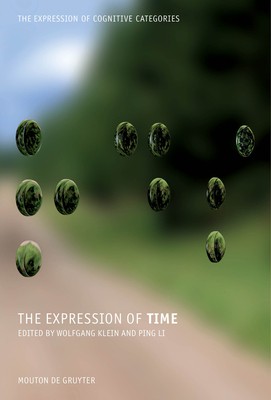
- We will send in 10–14 business days.
- Publisher: Walter de Gruyter
- Year: 2010
- Pages: 278
- ISBN-10: 3110195828
- ISBN-13: 9783110195828
- Format: 15.5 x 22.9 x 1.5 cm, softcover
- Language: English
- SAVE -10% with code: EXTRA
The Expression of Time (e-book) (used book) | bookbook.eu
Reviews
Description
Time is the most fundamental category of human cognition and action, and all human languages have developed many devices to express it. These include verbal categories, such as tense and aspect, but also adverbials, particles, and principles of discourse organisation. This book is intended as a tutorial for the study of how time is expressed in natural languages. Its chapters take the reader through a number of foundational issues, such as the various notions of time and the various means to express it; other chapters are devoted to more specific questions, such as the acquisition of time, its modelling in formal semantics and in computational linguistics, or how its expression can be empirically investigated.
EXTRA 10 % discount with code: EXTRA
The promotion ends in 9d.22:29:28
The discount code is valid when purchasing from 10 €. Discounts do not stack.
- Publisher: Walter de Gruyter
- Year: 2010
- Pages: 278
- ISBN-10: 3110195828
- ISBN-13: 9783110195828
- Format: 15.5 x 22.9 x 1.5 cm, softcover
- Language: English English
Time is the most fundamental category of human cognition and action, and all human languages have developed many devices to express it. These include verbal categories, such as tense and aspect, but also adverbials, particles, and principles of discourse organisation. This book is intended as a tutorial for the study of how time is expressed in natural languages. Its chapters take the reader through a number of foundational issues, such as the various notions of time and the various means to express it; other chapters are devoted to more specific questions, such as the acquisition of time, its modelling in formal semantics and in computational linguistics, or how its expression can be empirically investigated.


Reviews